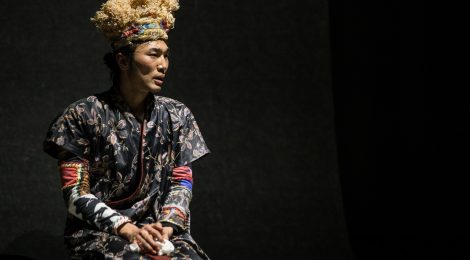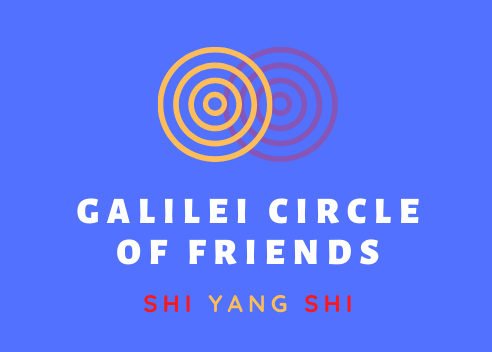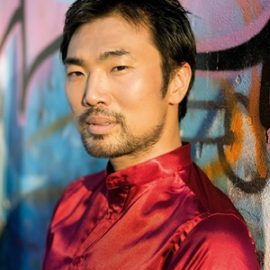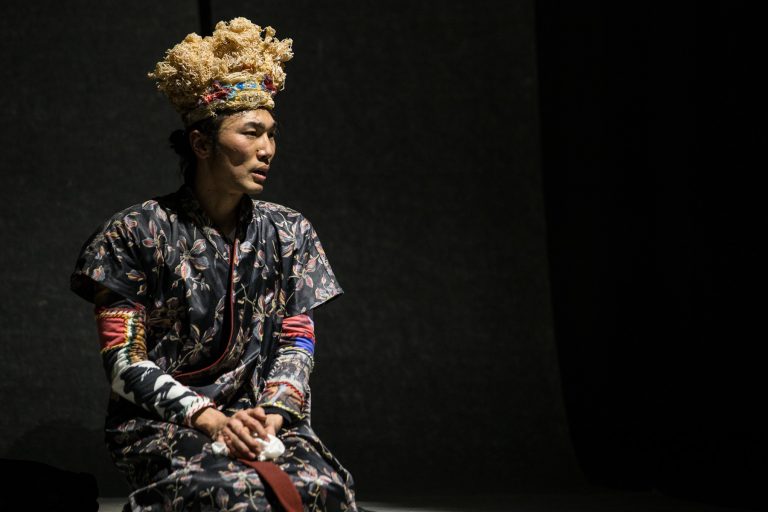
Galilei Circle of Friends – Interview with Shi Yang Shi PART 1

Born in China in 1979, since 1990 Shi Yang Shi has resided in Italy of which he has been a citizen since 2006. A “Sino-italian”actor, he covers interesting and innovative roles in cinema and on TV. Since 2014 he has been on stage with “ArleChino: translator and traitor of two masters” and from 2021 with “Love me tender”.
Graduated in Economics for Art at Bocconi University, four years ago he published “Cuore di Seta”” hir first autobiographical novel, edited by Mondadori. He has been a simultaneous translator for 20 years and has translated for Chinese President Xi Jinping in Milan. Awarded by the “Italy China Foundation” with the China Award 2019, during the Covid pandemic outbreak in Italy he translated and accompanied Chinese doctors to the Sacco hospital and the Lombardy Region.
It is a pleasure for us to interview him today for our “Circle of Friends” column and to share with our audience his story. In the first part, published today, we will ask Shi Yangshi about his personal experience of integration in Italy, while in the second part to be published next week we will focus on his career as actor and writer.

1. PERSONAL EXPERIENCE OF INTEGRATION AND GROWTH: a history of a double diversity
Dear Yang Shi, how long have you been in Italy and why did you choose to become an Italian citizen?
I arrived in Italy with my mother in March 1990. I was 11 and it was the first time I flew in my life. I was making “the exit from China”; “chuguo” in Chinese, the dream of many of my former compatriots. Until 2006 I was a Chinese citizen, while from 2006 onwards I have been an Italian citizen.
Why did I decide to become an Italian citizen? My sincere answer is that I realized that I did not want to be kicked out of Italy after so many years and sacrifices. In the most direct and sincere way I can tell you that citizenship guaranteed me the security of being able to stay in Italy and continue to build my life.
Why did you choose Milan as your city?
I have been based in Milan since my arrival to Italy simply because of Karma, which is a Buddhist concept. This term must be understood not in the sense of destiny, but as many and many actions: so many things have happened in the past thirty years of my life, I have not chosen anything. Milan has simply come to me, my parents decided to come here at first, then I stayed four years alone with my mother, and finally my father joined us. A long journey, which has brought difficulties but also beautiful and happy moments.
My family comes from the city of Jinan, the capital of Shandong Province. As migrants to Italy, we were among the first from this Province. After the end of the Cultural Revolution, my countrymen took their first steps outside of China. We arrived with the successive waves of immigration, in the early ‘90s. We arrived not by chance but that happened certainly not by my choice.
How did your integration experience in Italy develop? What were the main stages of growth and the greatest difficulties you encountered on your journey?
Since you are interviewing me on the train, I remember that as a kid, once I arrived here in Italy, having already learned enough Italian, I was often asked this question: why are you Chinese so close and impenetrable? And it seemed so strange to me, because I had no perception of being closed. In the following years I went to review my life, to understand the social circle in which I lived in. We were Chinese from Shandong, immigrants among immigrants, because most of the Chinese immigrants in Europe are from Wenzhou, Zhejiang. Then I realized that this communication difficulty has both sociological and historical origins, and certainly my community of reference has remained somewhat in the shadows.
From a linguistic point of view, I had no difficulties: it was relatively easy to learn Italian, after a year I already knew how to communicate fluently. The first difficulties were related to adapting to a very different life from the one I had in China: in China I was a member of a wealthy society. My mother was a doctor, my father an engineer. In Italy we did very humble jobs to survive and adapt, like maid, housekeeping, babysitter, dishwasher. For seven years I was a street vendor on the beach with my dad. But what has always helped me in my path has been to have within the awareness of a cultural preparation that others did not have.
The first impressions of Italy were complex: at the beginning it seemed to me that Italy was a country that did not welcome and support talents, whether they were Italian or foreigners. My mother’s talent in acupuncture was not accepted nor understood thirty years ago, while my father tried to make business with Italians, but despite his efforts he could not, because the Italian mentality was at that time very closed towards China. But I also found out later along the way, those prejudices were not only outside my family, but they were also a bit “at home”.

Yang while acting
How do you help and support the growing number of Chinese friends who arrive in Italy and the many Italians who want to get closer to China?
Surely I am an actor looking for roles because my first job is to act in a Western society, in particular Italian, where the roles of Italians of Chinese origin are still very few. In my continuous research, I contribute to the birth of new roles in theater, cinema, television and so on.
In the meantime, I get older but I don’t feel sorry for myself, because I can inspire younger generations. I have a growing influential public role, increased thanks to many interviews and speeches. During special periods, such as that of the outbreak of the Covid-19 epidemic in Italy, I was one of those many Sino Italians who for the first time raised their voices to have their say, to fight the sinophobia, to say that the virus was not Chinese, but that it was a problem of the world.
I am one of those Sino Italians who, thus loving our “nation of ancestors”, together with many Italian friends want to call things by their name. Without being silent but trying to unite what is possible, going to deepen themes and making the problems known, informing us and sharing. In this I think I can be a good bridge between Italy and China. Of course it is risky as a job, because there are extremes on both sides, but there is also a lot of interest in China, which is growing.
How has the perception of China in Italy changed in recent years?
I don’t know geopolitics well and I’m not the best person to talk about it, but from my humble point of view I saw an initial phase in which many Italians at first were very interested in China for the opportunities offered by its market. Italy woke up at a certain point, and joined the other great European nations to sell to China and in China. Among many proactive and smart entrepreneurs, some have been successful in China, others a little less, but they have certainly experienced how much “Made in Italy” was and still is appreciated in China.
The Italians who live or work permanently in Italy, usually learn about China from the news. For some, luckily a small minority, Chinese are considered somewhat invaders, or the ones who embezzled their earnings. On the other hand, I see that there are lots of Italians who are admirers, lovers of China indefatigably, and whatever happens they are friends of China, some for interest but above all for love. There is a majority of Italians who are xenophiles and curious, and are fascinated by China, its culture and millennial history. In recent years, more and more Italian students have enrolled at Universities and private schools and studied Chinese language courses and I see it very positively. In general, I can be optimistic about the future of relations between Italy and China.
The second part of Shi Yangshi’s interview will be published soon!
Interview by Marco Bonaglia




